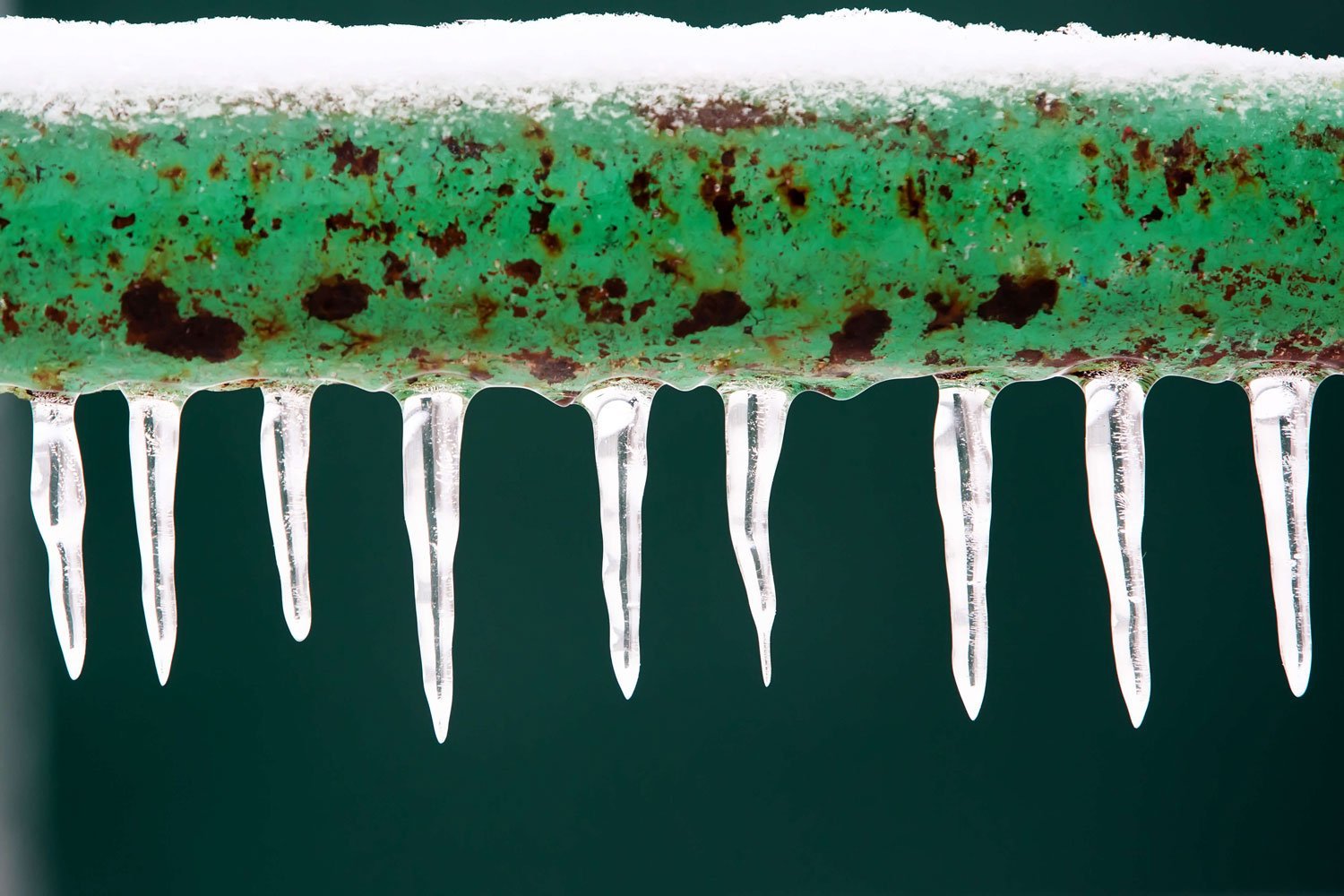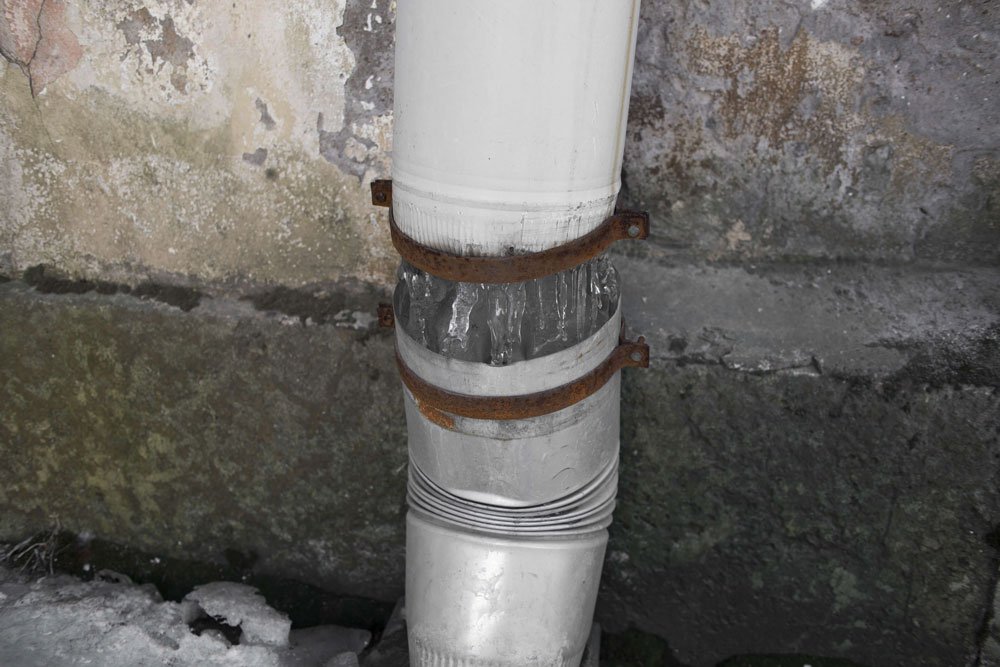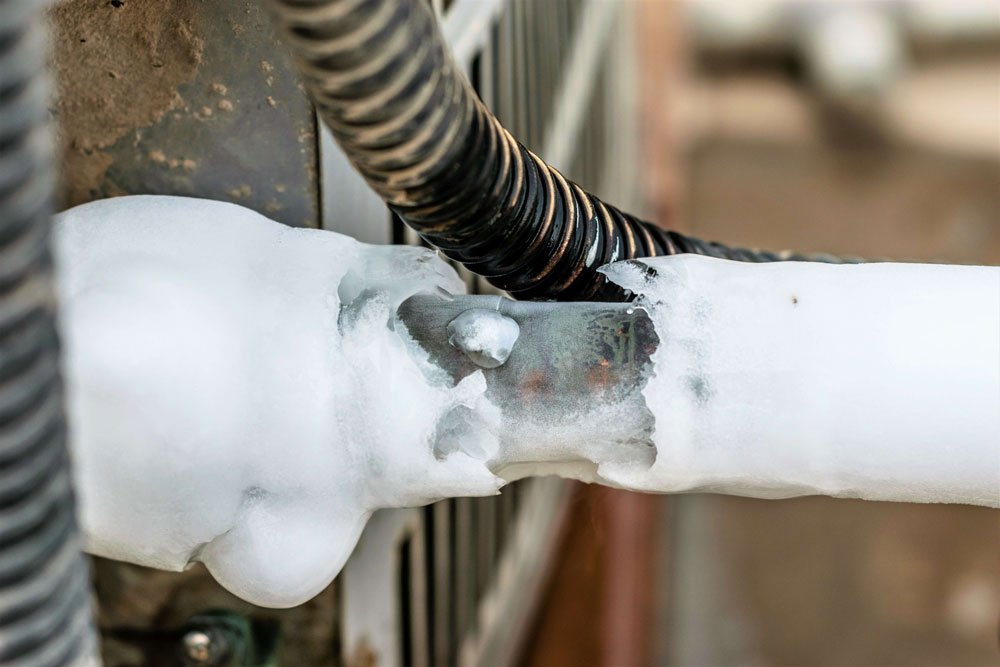How To Unblock A Frozen Drain Pipe

CONTENTS
- How does a drain pipe freeze?
- What causes drain pipes to freeze?
- What to do if you know the frozen pipe has burst
- Contact us today
Each year it feels like our winters are getting colder, with many parts of the UK plummeting to temperatures as low as -18C.
We are currently entering the coldest time of the year, which means one thing: frozen drain pipes. Winter is one of the most challenging seasons to manage, both inside and outside of your home.
Without realising, we rely on central heating to keep us warm. But what would happen if there was something stopping our heating from reaching us?
At ICE Cleaning, we are experts in drainage solutions, sewage cleaning and flood damage cleaning, operating nationwide to deliver excellent services to our customers. We offer same-day call-outs to resolve the issue quickly and professionally, and follow strict health and safety practices throughout the entire clean.
We can provide a free, instant quote via telephone, email or WhatsApp. Get in touch today.
Keep reading to find out how to unblock a drain pipe this winter season.
How does a drain pipe freeze?
When water freezes it expands, leaving the pipe blocked. The more water involved, the bigger the frozen block will be, causing damage to the pipe and frustration for the homeowners.
The more the blockage develops as the temperature drops, the bigger the risk of further damage to the pipes’ cracks. Once a large amount of water has solidified, it’s likely that a release in pressure will cause an eruption in the pipes, ultimately destroying the pipes and – in some cases – causing flooding.
As a homeowner, unless you’ve had a professional recently assess your pipes, you may not even realise that a pipe has burst or has incurred damages until the weather warms, allowing the ice to melt.
According to the ABI, the freezing temperatures at the start of this year saw claims for burst pipes jump from £4m to £197m quarter-on-quarter, suggesting that as a nation we are unprepared for the impact of extreme weather.
What causes drain pipes to freeze?
Everyone will have to deal with a frozen pipe at some point in their lives. Frozen pipes are incredibly problematic in that they leave you without water circulating through your house, resulting in the inability to complete simple daily tasks.
There are a variety of explanations as to why your drain pipe has frozen. Whilst the drop in temperature is the most common reason, other features may also be to blame, such as:
- Faulty insulation around the pipes
- Lack of water flowing through an exposed drain pipe
- A small crack within the drain pipe
 It can often be difficult to determine the cause. Luckily, we have some tips and tricks to help you unfreeze your pipes and get your household back to its usual functioning self.
It can often be difficult to determine the cause. Luckily, we have some tips and tricks to help you unfreeze your pipes and get your household back to its usual functioning self.
Before we dive into how to unfreeze a drainpipe, it is important to note that you should:
- NEVER hold an open flame near a frozen drain pipe. There have been several cases where an individual has placed an open flame next to a frozen pipe and ended up losing their entire house to a fire. Blowtorches, open flames and candles should never be exposed to a frozen pipe.
- NEVER use corrosive drain cleaners as they can cause a severe chemical reaction with either the ice or the pipes. This will result in the leak of a poisonous gas or substance that could shoot back up the pipe. If this were to happen, it could cause serious health issues – such as blindness.
Gradually Heat The Pipes
When a drain pipe is frozen, the trap part of the pipe is usually the main culprit. The trap is the abstract-looking piece of pipe located directly under your sink. The most simple way to unfreeze it is to warm it up.
However, do not apply an extreme amount of heat or use any sort of open flame (such as a lighter or blow torch) as this may cause further damage to the pipe. If the pipe has been damaged through exposure to extreme heat, you will need to call out a professional service to fix the damage.
You can gradually heat your frozen pipes by using some form of electrical equipment, such as a hair dryer or space heater. Do not place the product right on the pipe or you’ll risk further damage.
If you do not have access to such products, or your plug socket won’t allow the product to reach near the pipe, then you can opt to use a heating pad, warmed towel or a wet towel that has been soaked in hot water. Ensure the soaked towel is thoroughly wrung out, then simply wrap the material around the pipe and leave it to thaw the ice inside.
The process cannot be rushed or else further damage may occur, resulting in an emergency call-out service. Wrap the pipe with a hot towel or place the space heater near the pipe and wait for roughly 20-30 minutes.
Once the recommended time has passed, remove the product and turn on the taps. If no water comes through, try repeating the process one more time.
Pour boiling water down the drain pipe
If you do not have access to such electrical appliances, then pouring boiling water down the pipe can be a another option.
However, you should be extremely careful when completing this task as the boiling water has the potential to spit back up the pipe. This risk will depend on how far down the pipe the ice blockage is.
Whether you heat a pan of water on the stove or boil the water in the kettle, there needs to be enough water to break through the ice and defreeze the drain completely.
We advise that you only complete this process twice as if the pipe is severely blocked, the boiling water may not be able to break through the entire block of ice, resulting in the extra water becoming part of the frozen blockage.
 If you have tried the two options above and are still not getting any water coming through your pipes, then there is one last trick you can try before bringing in the professionals.
If you have tried the two options above and are still not getting any water coming through your pipes, then there is one last trick you can try before bringing in the professionals.
Add a handful of salt
You may have seen salt trucks being used to disperse salt particles over the roads and pavements during the winter seasons. This takes place because salt can melt ice by lowering the freezing point of the water.
You can apply the same methodology to your frozen drain pipe. Whilst we can’t promise instant results, we know from experience that this technique has the potential to be successful.
Simply pour a handful of salt down your drain pipe, quickly followed by boiling water. Alternatively, boil the water in a saucepan and stir the salt in the boiling water. Once the salt has completely dispersed, carefully pour it down the drain.
If you still haven’t had any luck, it may be time to call in the professionals. The specialists, such as our ICE Drainage team, will be able to thoroughly assess the pipes to find out why your pipes have frozen and where the blockage is located.
What to do if you know the frozen pipe has burst
In the unfortunate circumstance that your drain pipe has completely burst, the first thing you should do is shut off the main water line into your property to prevent any further damage occurring.
Turning off the water mains will also prevent water from leaking or flooding into your house. To ensure ultimate safety, all electricity near the pipe should be shut off immediately as a precaution.
When it comes to burst pipes, there is a high chance of leaks within your home. If not dealt with promptly, the leak could lead to flooding, dampness and mould.
Ultimately, the best way to unfreeze your drain pipes is to contact the professionals. If you are unable to locate the pipe or the frozen blockage within the pipe, or you don’t feel confident that you will be able to thaw the frozen pipe without causing further damage, then give a professional team a call.
Not only will they be able to fix the issue, they can also advise you on how to prevent similar incidents happening in the future.
Contact us today
Call 0208 066 0360 or write to enquiries@icecleaning.co.uk to speak with our drainage experts.
We operate 24 hours a day, 7 days a week, helping you to deal with emergencies such as drain blockages, sewage spills, flood damage, leak detection and mould remediation. We can have experienced drainage operatives on-site within a matter of hours, regardless of location or time.

Speak with me today,
I’m here to help
By asking you a few questions either via phone or email I can immediately provide a realistic estimation of the cost.
You’re in good company. We’ve cleaned for the following commercial clients… View all

Why choose us?
- Cater to a wide variety of cleaning situations
- Nationwide coverage, available 24/7
- Cater to commercial and domestic clients
- Free survey provided prior to quotation
- Emergency response team
- Offer a bespoke service designed to suit all your needs
- All technicians hold professional health and safety qualifications, including BICSc, IOSH, Dewpoint Professional & Safe Contractor
We’re fully accredited
We place best practise, professional expertise and health and safety at the core of our business. We’re fully compliant with all legal obligations. You can view a list of our accreditations below, or visit our Health & Safety page for more information.











-RGB-small.1707319151.jpg)





















Comments
Steve Barr
Over a year ago
This blog post was a lifesaver...thank you!